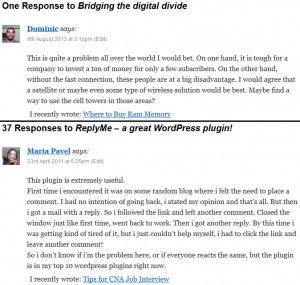Responsible Innovation
Some of my reader(s) might know that I work in the field of Responsible Innovation. This is a growing area within Science and Technology studies, but also plays a part in EU legislation and funding as well as working practices in general.
To be perfectly honest, one of the problems we have in the field is defining and explaining what we work on. I would say in general terms that we are interested in making innovation processes more democratic and transparent, while aiming scientific and technological development towards improvements for society. So possibly make the development of things that might be advantageous for society a priority, even if they might not be so profitable.
If you would like more information before I give you your homework for this week, check out this article in the Spectrum Engineering blog (I wrote it). Take a look at the MATTER website, or the Bassetti Foundation who I collaborate with in my work, or you could even download my $1.17 book from Amazon.
Or none of the above, just use a general sense of what it might look like in your own imagination.
So here we come to the homework part.
Your opinions and Ideas
As part of the European Commission’s Digital Agenda for Europe, Hilary Sutcliffe of the UK based think-tank MATTER (linked above) has launched the New Principles for Responsible Innovation document. Hilary is the plainest speaker of the community, and she wants to know what the general public think about developments. So her document is an open call for comments, with particular interest and questions about the following aspects of RI:
1. Purpose – is it realistic to think that such a voluntary initiative will have a useful role as we have envisaged it? If yes or no, it would be helpful to know why. (My interpretation of this question, can we improve society through voluntary action within innovation?)
2. Content – Are there gaps or duplications or structures which you think are unhelpful? Do you have suggestions on how that could be improved? (If so, how could we do it, which structures might be useful, and where are the obstacles?)
3.Effectiveness – How do you think this would be best implemented? Do you agree with our concept of Radical Transparency being the tool for all stakeholders to access the information of their choice in place of armies of verifiers, or is this just unrealistic? (Could it all be done through transparency, and without rules from above?)
The main aims of the project are to generate positive momentum for transformative innovation for social good and create shared expectations to help build trustworthiness & confidence, and there are several ways in which any interested parties can contribute, with comments from yourselves at number 1.
The document is available here, and I would urge everyone to have their say by replying to Hilary in person through the email link contained within it.
Tell her Jonny sent you.





